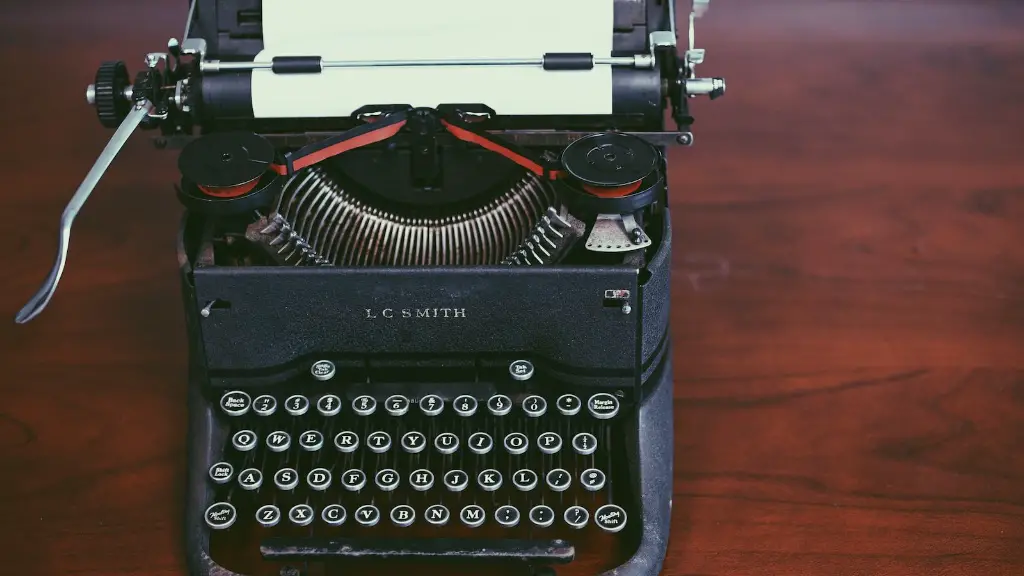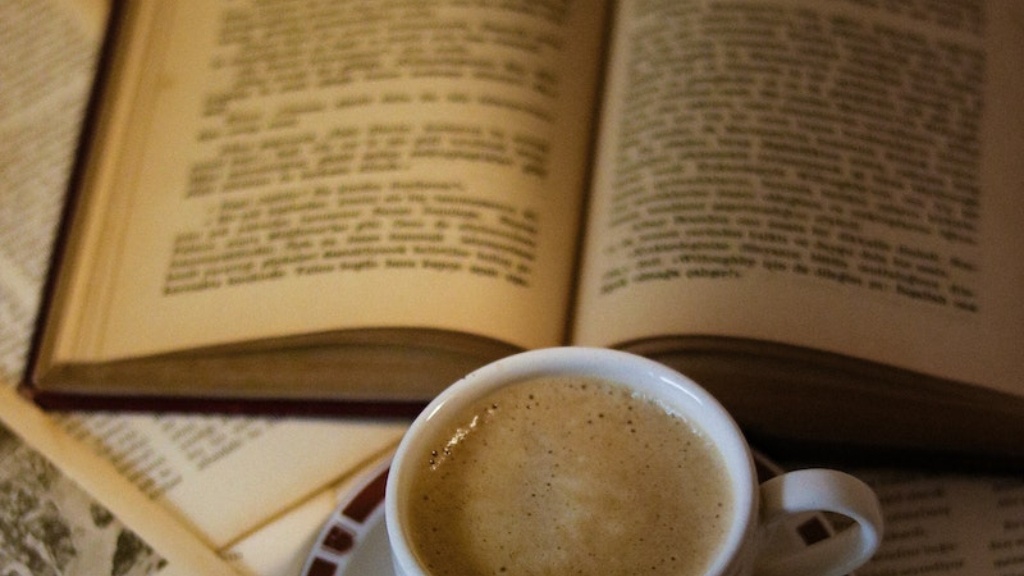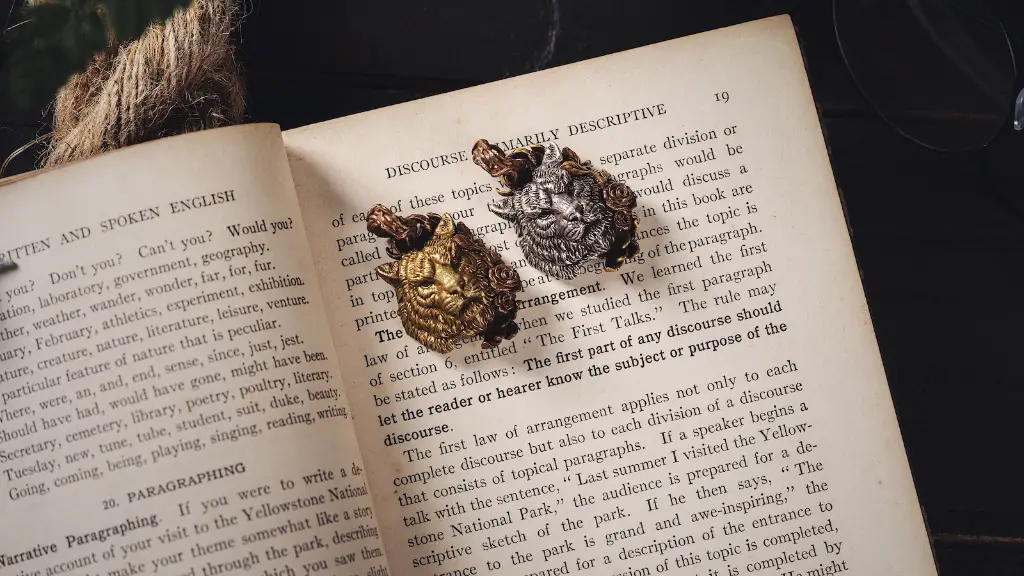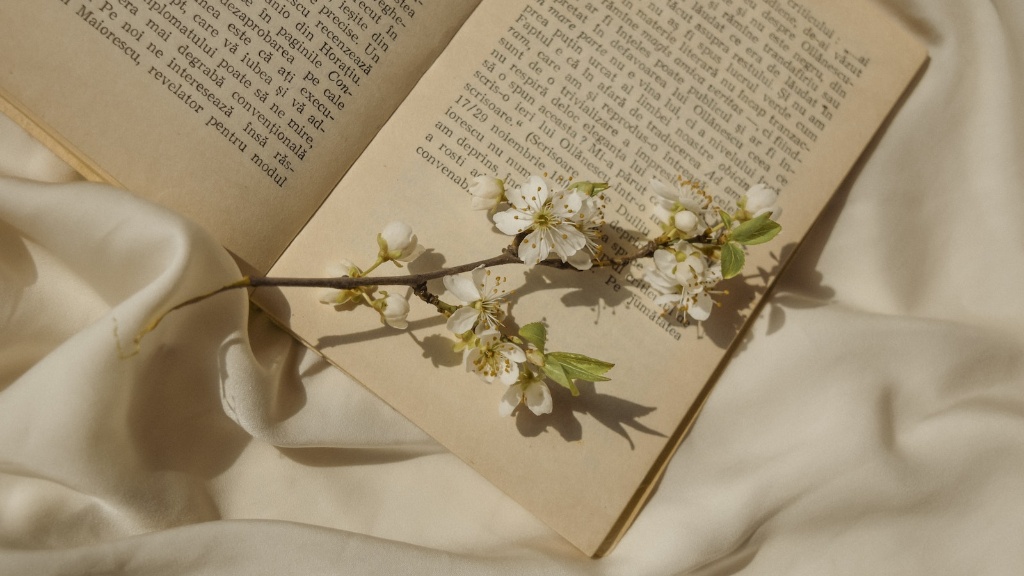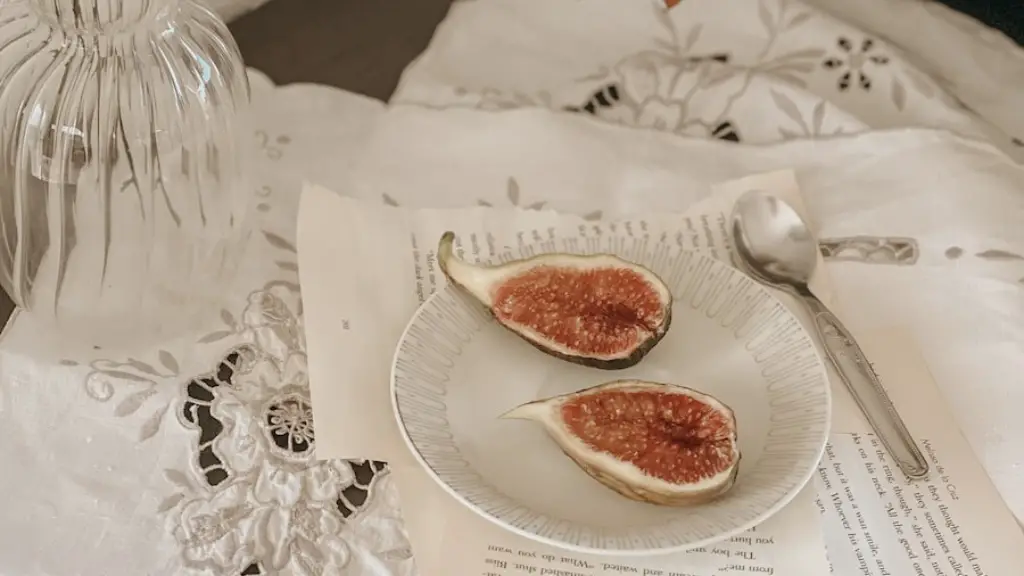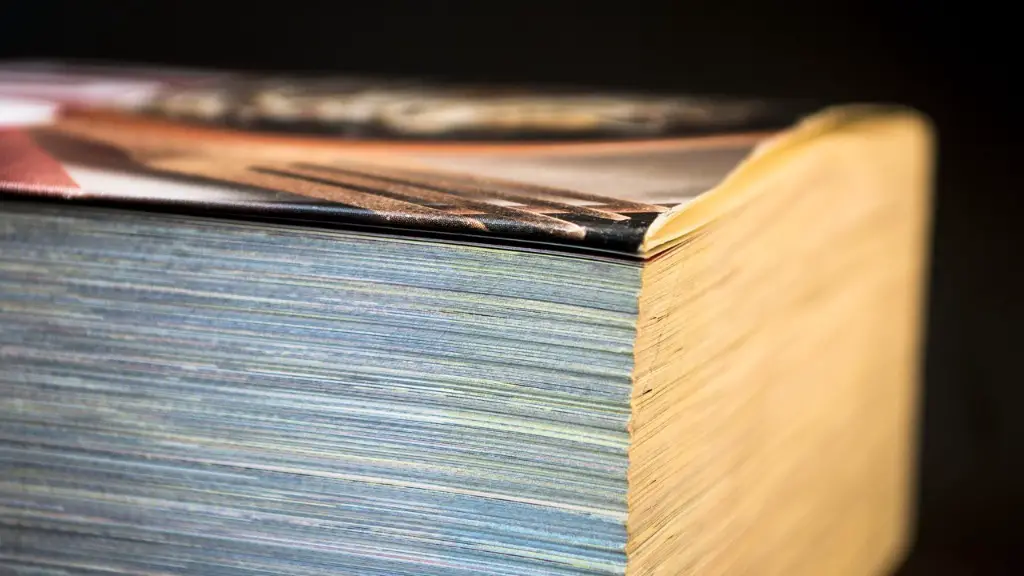Lyric poetry is a genre of writing that allows for a greater expression of emotion than more traditional forms of poetry. The term lyric is derived from the ancient Greek term ‘lyre’, a stringed instrument that was used to accompany a form of singing. This kind of poetry allows the poet to express their innermost feelings or observations of events or people in a concise and melodic way. It can be used to talk about love and relationships, nature and the human condition, or to reflect on the complexities of life. Lyric poetry is often seen as the bridge between an inner life and the wider world, and its roots go back to the early days of poetry.
Unlike its more formal counterpart, lyric poetry does not have to rhyme or adhere to a certain structure. Instead its main focus is the voice of the poet and conveying emotion, allowing for a greater exploration of the impact of words. A key feature of lyric poetry is its use of imagery, which allows the poet to paint a vivid picture of the situation they are describing. This is done through the use of metaphors, similes, and personification, helping to bring their thoughts alive on the page.
In this day and age, lyric poetry is still a popular form of expressing oneself. It can be used to express feelings of joy, love, despair, and grief, and there are countless examples of lyric poetry to be found in the works of poets both classic and contemporary. It is also a great way for people to connect to their emotions, and to understand that emotions are a powerful force in life.
In order to understand the impact of lyric poetry, it is important to recognise that it allows for a freedom of expression that is otherwise muted. For example, it can be used to explore the darker sides of life and to express innermost thoughts that might otherwise remain locked away. It also allows for a more personal expression of emotion, allowing the poet to convey a message without worrying about offending anyone or without conforming to any rigid formalities.
Lyric poetry is also a great way to create something that has a lasting impact. As the words are emotive and stir something within the reader, they resonate more than words spoken in everyday speech. Its expressivity is often received as a source of comfort, strength and courage, showing how emotionally powerful the genre can be.
One of the great things about lyric poetry is that it can be used to reflect on almost any kind of experience or emotion. Whether it’s joy, love, anger, rage, sorrow or joy, the possibilities are endless. This allows for a great deal of creativity in the poet’s work, as they can use their own personal experiences to shape their words.
Regardless of the emotion being expressed, lyric poetry is an art form that allows for a great deal of freedom and creativity. It’s both an accessible and powerful way of expressing oneself, allowing the poet to explore their innermost thoughts and feelings.
Love
When it comes to lyric poetry, love is one of the most popular topics for many poets. This is due to its relevance in the lives of many people and how it can often bring out intense and conflicting feelings. From love at first sight to declaring undying devotion, lyric poetry can be a great way to explore the complexity of these experiences.
Throughout history, lyric poetry has been used as a way of expressing and exploring love in all its forms. Poets like Shakespeare and Byron wrote extensively on this topic, exploring love, heartache and the strength of emotion that comes with the experience. It’s an excellent way to articulate feelings that can be difficult to put into words, and lends itself to exploring the intricacies of the human heart.
Love can also be used as a force for good in lyric poetry, showing the beauty that can be found in the love between two people or a love for another person’s being. In this way, lyric poetry can be used to celebrate connections and relationships, and convey the deep emotions that come with these experiences.
In lyric poetry, love can be explored and expressed in whichever way the poet wishes. It is an incredibly powerful force that can be used to create something beautiful and unique, and leave a lasting impact on the reader.
Nature
Nature is also another common theme that is explored in lyric poetry. Nature has been a source of inspiration for many poets, as it allows them to express their feelings in a visual and immersive way. It is also a topic that has been explored for generations, as it provides endless inspiration for the creative poet.
In lyric poetry, nature can be used to convey a wide range of emotions and ideas. Its beauty and power can be used to express love, awe and admiration, while its fragility can be used to explore deeper contemplation. Its sounds, smells and colours can inspire poets to create something unique and moving.
Nature is also an excellent source of metaphors, allowing the poet to make comparisons and create vivid images in the reader’s mind. This is a great way to bring the poem to life and evoke an emotional response in the reader. It can also be used to explore deeper topics such as death, mortality and the passing of time, showing how nature is both a comfort and a reminder of our mortality.
Lyric poetry provides an excellent platform to explore the power of nature. Its beauty and shapes can be used to speak about the human experience, allowing the poet to create something unique and powerful.
Human Condition
The human condition is a common topic for lyric poets, as it allows them to explore the depths of the human experience in a new and creative way. It is a topic that has been explored for generations, often touching on aspects of life like suffering, liberty and mortality that can be difficult to put into words. The use of imagery and metaphor lend themselves to exploring these topics in a unique and powerful way, allowing the poet to express themselves in a different way.
The human condition is a broad topic that can be explored in many ways in lyric poetry. It can explore our everyday experiences and feelings, or look to the deeper and more complex aspects of our lives. For example, one might explore the feeling of being trapped and longing to escape, while another might explore the joys of simple pleasures. In either case, poetry allows us to view the world in a different light, often providing insights that we might not find elsewhere.
When exploring the human condition in lyric poetry, it is important to be mindful of the power of one’s words, and the lasting impact they can have. It is a great way to express oneself and to work through difficult experiences, but it is also important to remember that lyric poetry is a powerful tool, and can have a lasting impact on the reader.
Emotions
The use of emotion is a common tool in lyric poetry, allowing the poet to explore and express their innermost feelings. It is often used to evoke a strong emotional response in the reader, allowing for a deeper and more meaningful connection between the poet and the audience. Emotions are a powerful tool in the creative process, and can be used to convey a powerful message in a concise and meaningful way.
Emotions can also be used to explore different aspects of life and convey different messages. For example, anger can be used to express frustration and injustice, while joy can be used to celebrate life and the beauty of the world. In this way, emotion can be a powerful tool for conveying a wide variety of meanings, making them a great tool for lyric poetry.
It is important to remember that while emotions can be used to convey powerful messages, they should also be used responsibly. If a poet is to use emotion to explore their own experiences or those of others, it is important to do so sensitively and be mindful of the lasting impact of their words.
Lyric poetry is a great way to explore and express emotion, and its power can be used to create something unique and meaningful. By expressing emotions in new and creative ways, poets can create works that have a lasting impact on the audience.
Legacy
Lyric poetry has been a powerful force in the world of poetry since its inception, and its legacy is one that has endured over the centuries. Its concise and expressive nature has allowed it to be used in many different ways, and its capacity for conveying strong emotions makes it an essential tool for creative expression.
For many poets, lyric poetry is a source of comfort and strength, allowing them to express their innermost thoughts and feelings in a way that has a lasting impact on the reader. It is also a great way to explore different aspects of life, providing an excellent platform for creative expression.
As we look to the future, lyric poetry can continue to be a powerful force for exploring and expressing the human experience. Its versatility and capacity for emotion make it the perfect tool for exploring a wide range of topics, from love and nature to the human condition. While its lyrical qualities may have evolved over the centuries, its power to touch the hearts of its audience remains unchanged.
The legacy of lyric poetry is one of creativity and emotion, allowing poets to explore the depths of the human experience in a unique and powerful way. It will continue to provide endless inspiration for generations to come, and its influence on the world of poetry remains strong.
